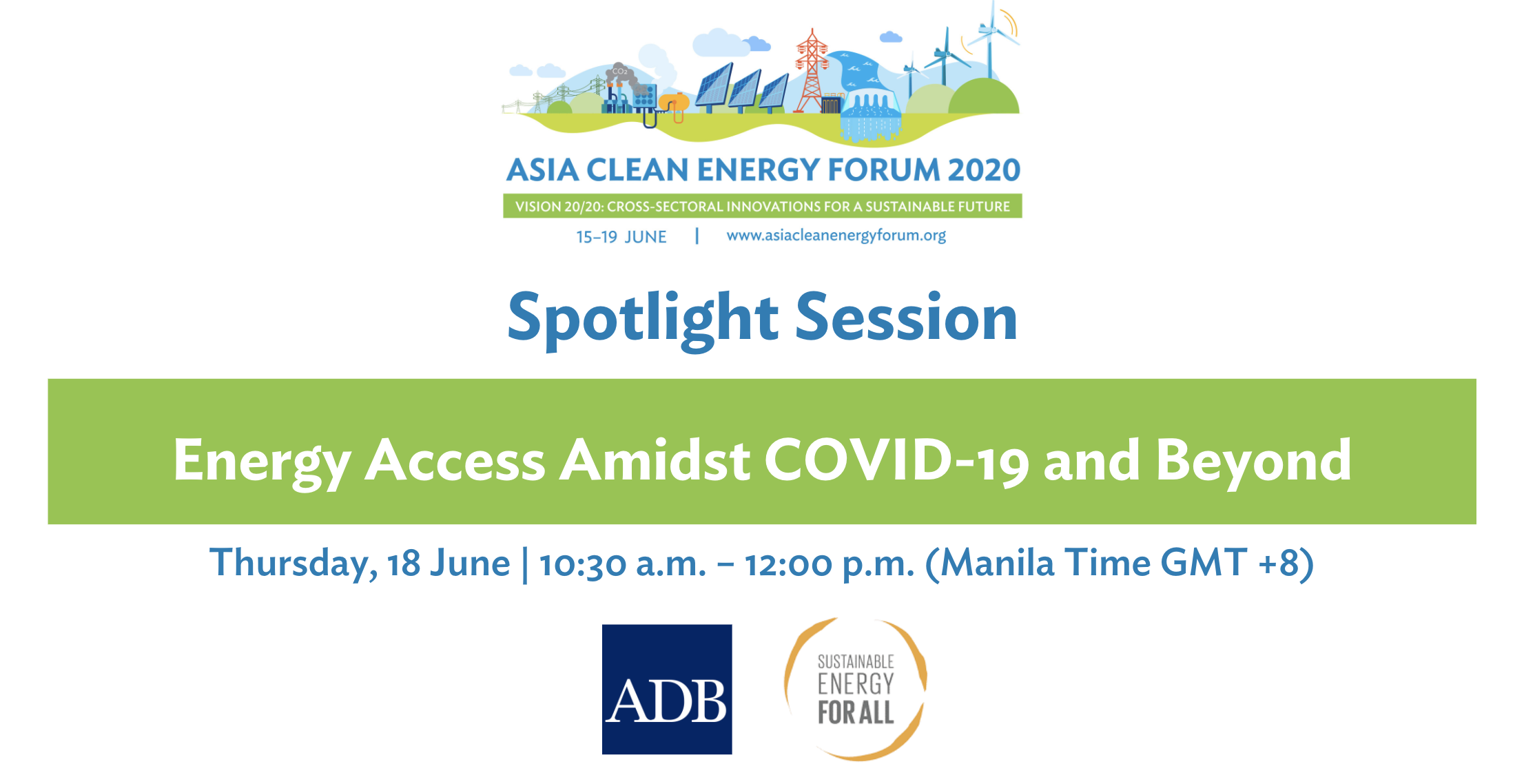
Background
COVID-19 has changed the global landscape and is causing unprecedented disruptions around the world. With healthcare systems struggling and billions of people relying on electricity while confined to their homes, the importance of having access to electricity cannot be overemphasized. The humanitarian response of the energy sector to the COVID-19 pandemic has been critical in helping communities cope with the challenges of community lockdowns and stay-at-home measures to prevent the spread of the virus. Access to electricity, especially in off-grid areas, have allowed people to communicate and stay informed of the various government initiatives and advisories to keep the virus in check.
The COVID 19 epidemic has also highlighted the need to focus into the other aspects of energy access beyond electricity. For instance, exposure of people to household air pollution significantly increases their vulnerability to respiratory illnesses, like COVID 19 and pneumonia. Thus, a significant shift from traditional fuels to clean cooking solutions would help protect millions, especially women and children now and that of future generations from COVID-like respiratory viruses. Aside from health concerns, food security under the “new normal” conditions would be facing more challenges as well, from production to processing, preservation, and transport from farm to table, highlighting the need for access to clean water and cooling.
In this context, access to energy is critical to guaranteeing not only the availability of healthcare in the face of the COVID-19 pandemic, but also, other health challenges in the future. It is also key to ensuring quick economic recovery and in helping put the world on a sustainable trajectory after the immediate crisis has passed. Thus, even while governments are focused on immediate response solutions to the COVID-19 crisis, recovery measures must not be distracted from achieving the UN sustainable development goals, including SDG7 and climate change objectives.
The post-COVID environment will be characterized by possible prolonged recession, high levels of unemployment, and governments seeking to invest in job creating infrastructure projects to re-ignite the economy. Ideally, stimulus packages should include an accelerated shift to sustainable, decarbonized economies that are resilient and inclusive. This creates a window of opportunity for advancing sustainable, clean energy solutions, including decentralized renewable energy for off-grid energy access. Decentralized renewable energy brings with it a range of options that can help revive industries, create new jobs and serve healthcare and other needs of energy-poor, vulnerable communities. Given this Post-COVID scenario, will the heightened need for clean technologies and energy resilience help advance the cause of energy access, or will lingering issues of market size, affordability and logistics pose difficulties in the achievement of universal access by 2030? What can governments and clean development stakeholders and advocates do to ensure that energy access goals are pursued in earnest beyond COVID 19?
In this spotlight session, experts from various international organizations, private sector groups and alliances came together to discuss the impacts of COVID-19 and the outlook for energy access in the wake of this pandemic. They highlighted possible actions that governments and other stakeholders, i.e., development organizations, private sectors, etc. can take to keep within the SDG7 track, post COVID 19.
Objectives
-
1. To highlight the impact of COVID-19 on energy access with a focus on the off-grid sector.
2. To showcase examples of how governments, organizations, and the private sector have reacted to the crisis and develop resiliency.
3. To highlight post-pandemic opportunities and possible actions for recovery, resilience, and deployment of sustainable energy infrastructure to keep energy access on track in pursuit of SDG 7 by 2030.
Presentations
- Praviin Kumar - Impact of COVID-19 on the Off-grid Energy Sector
- Ben Jeffreys - COVID-19 Business Impact
- Madhusudhan Adhikari - Governments’ Energy Response Plans in off-grid areas
- Glenn Pearce-Oroz - Recovering Better with Sustainable Energy: It's about jobs and competitiveness
- Rene Fajilagutan - Voice from the Field: Operating Small Island Minigrids to Meet the Requirements of Rural Communities
- Parimita Mohanty - ROAD TO RECOVERY: Helping women in climate-sensitive sectors - build back better
Point of Contact
Mikael Melin, SEforALL
Email: mikael@seforall.org
